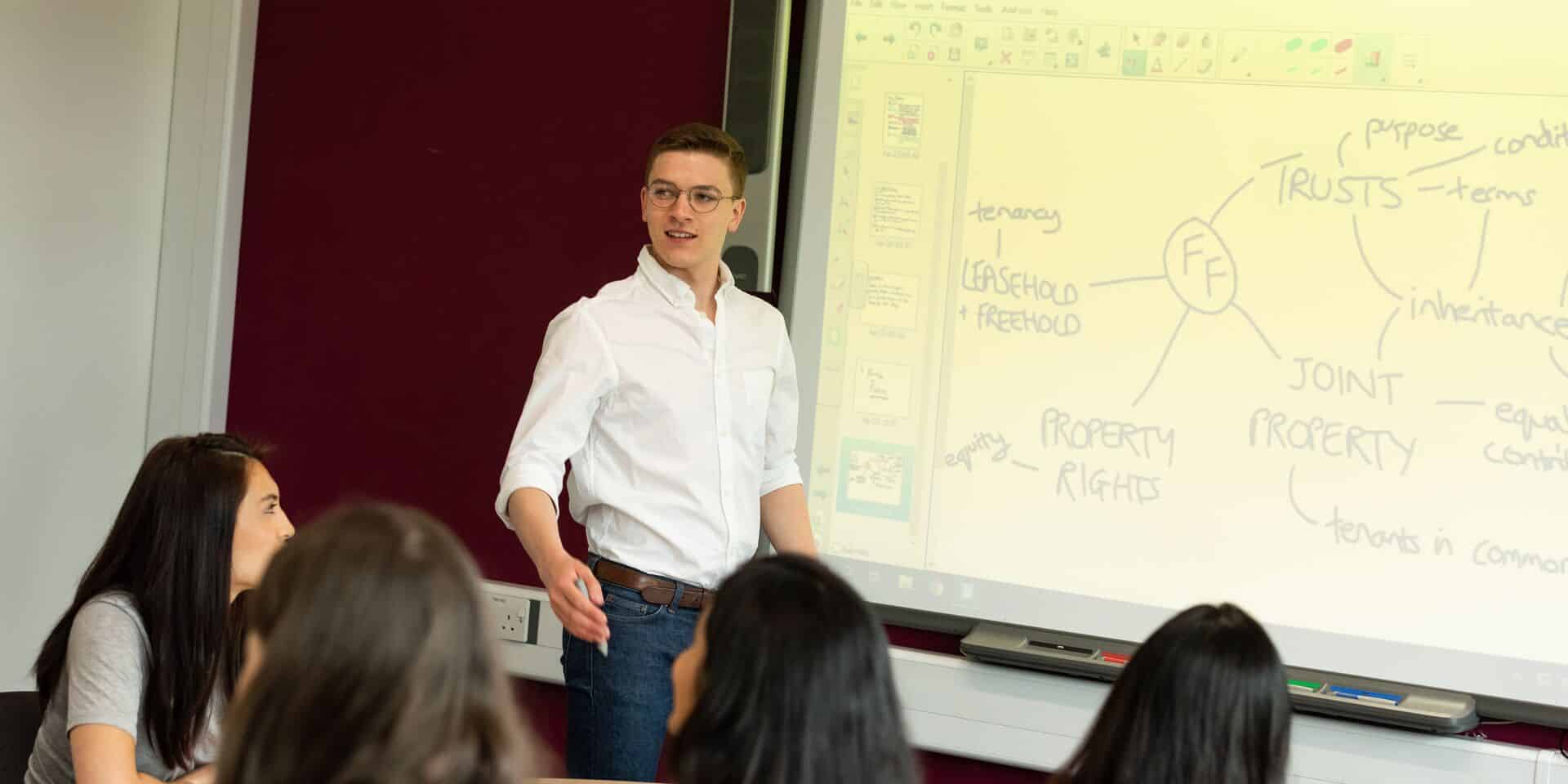It’s no secret that graduates from prestigious law schools possess a competitive edge that sets them apart in the legal landscape. Employers know these candidates have a comprehensive understanding of legal principles, critical thinking skills, and the ability to navigate complex legal issues effectively — all of which are credited to rigorous academic programmes, renowned faculty and industry-aligned hands-on experience. For all the above and a little more, look no further than the University of York Law School.
Established in 2008, it may be young, but it’s still impressive in every sense of the word. Begin with the fact that it is part of a Russell Group university, ranked among the UK’s top 20 and the world’s top 200. Hence why York Law School has grown from an initial entry of 75 undergraduate students in 2008 to an annual entry of around 240.

Source: University of York Law School
It’s small by choice, recognising the importance of seeing students not just as names on a roster but as individuals with unique needs and aspirations. Staff here take time to listen, understand and address any concerns or challenges students may face. This emphasis on care ensures tomorrow’s lawyers feel supported academically, emotionally and personally.
Faculty members are always available for students whether that’s to do with questions about coursework, assistance in navigating career paths or simply guidance and encouragement. Their doors stay open, despite having to double as nationally and internationally renowned scholars. Professor Joe Tomlinson is a prime example. Alongside teaching Public Law, he is also currently Co-Chair of the Academic Panel of the Administrative Justice Council, a member of the Academic Panel at Blackstone Chambers, and a member of the Expert Panel for the Digital Freedom Fund. Outside the classroom, he researches three key policy domains: poverty alleviation and social security; health and social care; and immigration and asylum.
Professor Charlotte O’Brien specialises in EU social law and citizenship as well as both UK and EU welfare law. “My work focuses on bringing together doctrinal and empirical study, particularly developing new socio-legal research methods to study EU law,” she says. At the same time, she serves as Principal Investigator in the ESRC-funded EU Rights and Brexit Hub. She’s also York Law School’s Equality and Diversity Champion.
Equally impressive, Professor Tomoya Obokata is an expert on transnational organised crime and modern slavery, with several publications in these areas. He serves as Special Rapporteur on Contemporary Forms of Slavery for the United Nations Human Rights Council in Geneva, when he is not sharing his experiences in York Law School’s International Human Rights Law classrooms, sparking passionate discussions with every insight.
The LLM International Human Rights Law and Practice, as a whole, was designed to engage students in a critical, nuanced and interdisciplinary examination of human rights abuses —- which still occur, despite the rise of international treaties and organisations dedicated to their eradication. The programme stands out for enabling students to work on real human rights issues in partnership with international and local NGOs, UN mechanisms or governmental bodies; undertake fieldwork and acquire valuable socio-legal skills; as well as study alongside human rights defenders and policy-shaping researchers within the Centre for Applied Human Rights.
Another programme that leverages the power of experiential learning is the LLM International Corporate and Commercial Law, which explores the differences in laws and governance in countries across the globe and how they respond to economic and social pressures. Modules reflect the latest innovations in legal education. Students get to work in a student law firm to complete a number of problem-based learning exercises based on varied real-life corporate commercial transactions and matters developed in consultation with legal practitioners.

Source: University of York Law School
Students interested in other areas could opt to explore the LLM Art Law, LLM Legal and Political Theory or LLM Law or the more practice focused LLM Law (Juris Doctor) — all of which use York Law School’s signature style of teaching.
“Our innovative problem-based approach to teaching creates a modern, intellectually stimulating learning environment that gives students a real awareness of the many social roles law plays and is relevant to the legal profession and beyond,” explains Head of School, Professor TT Arvind from India, who is one of the founding members of the law school.
The best part? All programmes are delivered from a city that is just as safe as it is eye-opening. Life here is good, filled with convenience, culture and beauty. The city is regularly voted one of the best places to live and visit in the UK.
Students quickly feel at home at York Law School’s green campus, which is located just a short 20-minute walk from the city centre, providing a serene and conducive environment for rigorous study. Those who prefer the hustle and bustle will be happy to know that vibrant cities like Bradford, Manchester, and London are just a stone’s throw away. However, it’s easy to understand why students prefer staying put when York Law School offers top-notch individual accommodation with comfortable rooms, private bathrooms, and convenient kitchen facilities.
Click here for more information about the University of York Law School’s LLM programmes.
Follow the University of York on Facebook, Twitter and YouTube.












